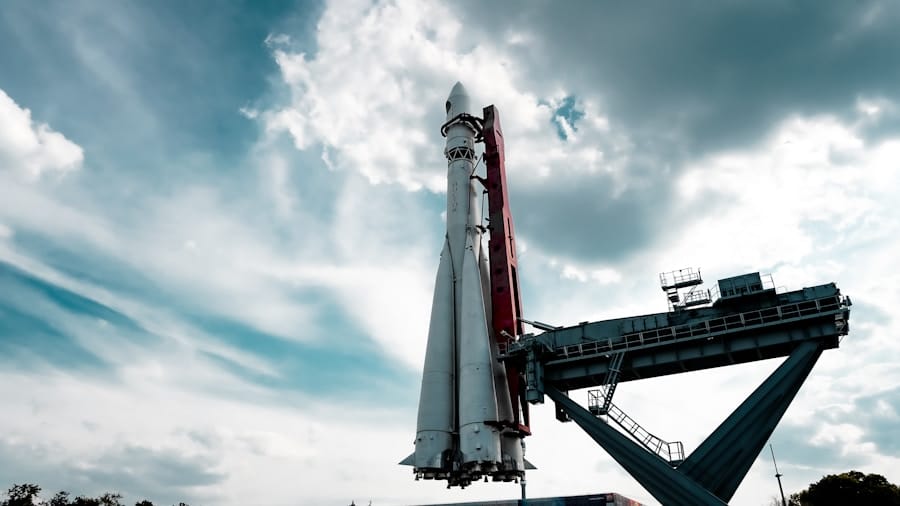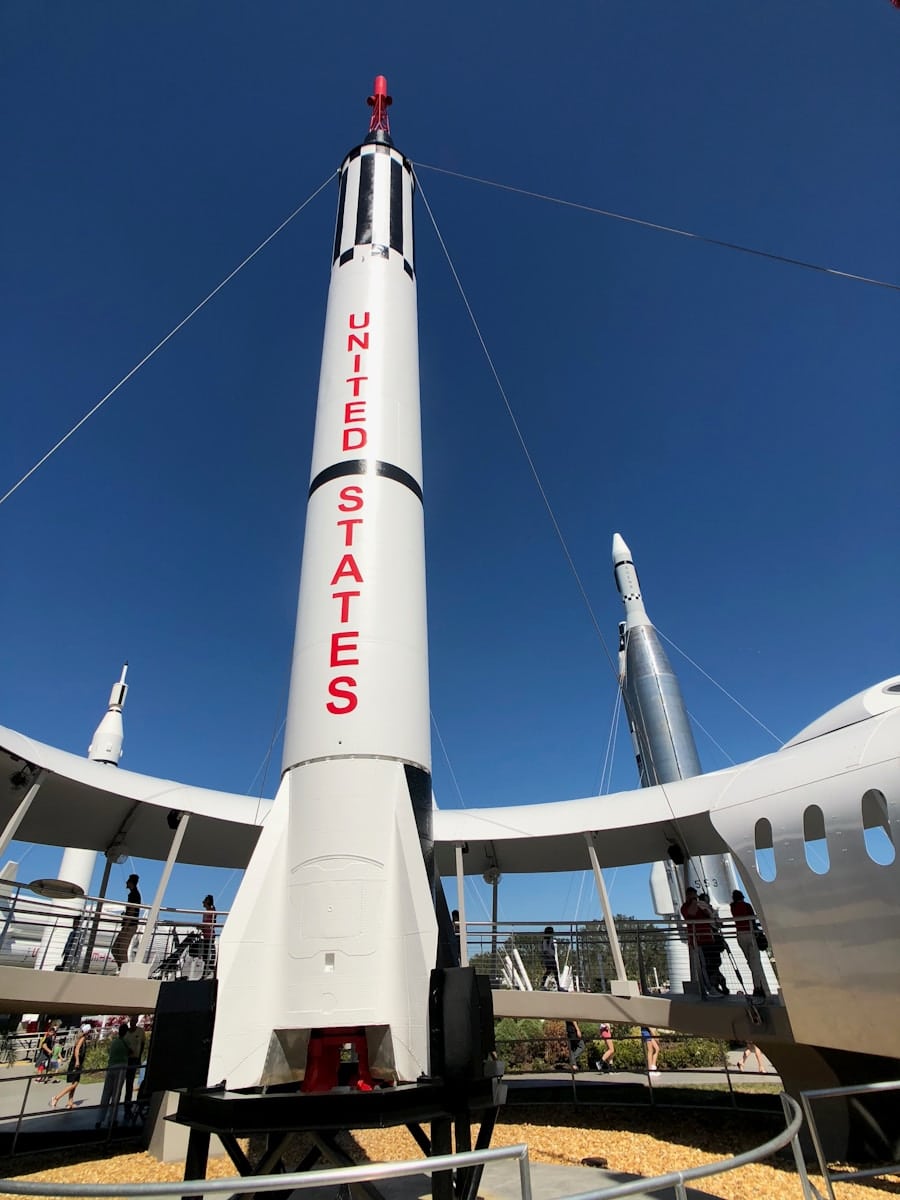The advent of reusable rocket technologies marks a significant turning point in the realm of space exploration and commercial spaceflight. Traditionally, rockets were single-use vehicles, expending vast resources and incurring substantial costs with each launch. The development of reusable rockets, however, has transformed this paradigm, allowing for the recovery and refurbishment of rocket components, thereby drastically reducing the cost per launch.
Companies like SpaceX have pioneered this approach, demonstrating that rockets can be designed to return to Earth safely after delivering payloads to orbit. This innovation not only makes space more accessible but also paves the way for more frequent and sustainable missions. Reusable rocket technologies hinge on sophisticated engineering and design principles that enable rockets to withstand the rigors of launch and re-entry.
The Falcon 9, for instance, is equipped with grid fins that allow for aerodynamic control during descent, and its engines are designed for multiple ignitions. These advancements are complemented by rigorous testing protocols that ensure reliability and safety. As the industry evolves, the integration of artificial intelligence (AI) into these technologies is becoming increasingly prominent, promising to enhance performance, optimize designs, and streamline operations.
Key Takeaways
- Reusable rocket technologies are revolutionizing space exploration by reducing costs and increasing efficiency.
- Current challenges in reusable rocket technologies include the need for improved reliability and cost-effectiveness.
- AI plays a crucial role in enhancing reusable rocket technologies by optimizing designs and predicting potential issues.
- Advancements in AI for rocket design and manufacturing are enabling faster and more precise production processes.
- AI’s impact on rocket launch and landing is improving accuracy and safety, leading to more successful missions.
Current Challenges in Reusable Rocket Technologies
Despite the remarkable progress made in reusable rocket technologies, several challenges persist that hinder their widespread adoption and efficiency. One of the primary obstacles is the technical complexity involved in designing rockets that can withstand multiple launches and landings. Each component must be engineered to endure extreme conditions, including intense heat during re-entry and the mechanical stresses of launch.
This necessitates a delicate balance between weight reduction and structural integrity, which can complicate design processes. Additionally, the economic viability of reusable rockets remains a concern. While the potential for cost savings is significant, the initial investment in research, development, and infrastructure can be daunting.
Companies must also contend with the unpredictability of market demand for launches, which can affect their ability to recoup these investments. Furthermore, the logistics of refurbishing rockets after each flight introduce additional costs and time delays that can impact overall operational efficiency. As the industry matures, addressing these challenges will be crucial for ensuring the long-term sustainability of reusable rocket technologies.
The Role of AI in Enhancing Reusable Rocket Technologies

Artificial intelligence is poised to play a transformative role in enhancing reusable rocket technologies by providing advanced analytical capabilities and automating complex processes. AI algorithms can analyze vast amounts of data generated during rocket launches and landings, identifying patterns and insights that human engineers might overlook. This data-driven approach enables more informed decision-making regarding design modifications and operational strategies, ultimately leading to improved performance and reliability.
Moreover, AI can facilitate predictive maintenance by monitoring the health of rocket components in real-time. By employing machine learning techniques, AI systems can predict potential failures before they occur, allowing engineers to address issues proactively rather than reactively. This capability not only enhances safety but also reduces downtime between launches, maximizing the operational efficiency of reusable rockets.
As AI continues to evolve, its integration into rocket technologies will likely become more sophisticated, further driving innovation in the aerospace sector.
Advancements in AI for Rocket Design and Manufacturing
The integration of AI into rocket design and manufacturing processes has already begun to yield significant advancements. Generative design algorithms, powered by AI, allow engineers to explore a multitude of design options rapidly. By inputting specific parameters such as weight constraints and material properties, these algorithms can generate optimized designs that may not have been conceived through traditional methods.
In manufacturing, AI-driven automation is revolutionizing production lines for rocket components. Robotics equipped with AI capabilities can perform intricate tasks with precision and speed, reducing human error and increasing throughput.
For instance, additive manufacturing techniques, such as 3D printing, are being enhanced by AI algorithms that optimize printing parameters in real-time based on material behavior and environmental conditions. This synergy between AI and manufacturing processes not only streamlines production but also allows for greater customization of components tailored to specific mission requirements.
AI’s Impact on Rocket Launch and Landing
The launch and landing phases of rocket missions are critical moments where precision is paramount. AI technologies are increasingly being employed to enhance these operations through improved guidance systems and autonomous decision-making capabilities. During launch, AI can analyze real-time data from various sensors to optimize flight trajectories dynamically.
This capability allows rockets to adjust their paths based on changing atmospheric conditions or unexpected obstacles, ensuring a higher likelihood of mission success. Landing operations benefit significantly from AI as well. SpaceX’s Falcon 9 employs advanced algorithms to control its descent and landing maneuvers autonomously.
By processing data from onboard sensors and cameras, the rocket can make real-time adjustments to its landing approach, ensuring a safe touchdown on designated platforms or drone ships at sea. This level of automation not only enhances safety but also reduces the need for extensive ground support during landings, further streamlining operations.
Future Possibilities for AI in Reusable Rocket Technologies

Autonomous Rockets: Revolutionizing Space Exploration
One promising area is the development of fully autonomous rockets capable of conducting missions without human intervention. Such advancements could revolutionize space exploration by enabling more frequent missions to distant destinations like Mars or asteroids without the constraints of human crew logistics.
Continuous Improvement through Autonomous Systems
Autonomous systems could handle everything from launch to landing while continuously learning from each mission to improve future performance.
AI Synergies: Unlocking New Frontiers
Another exciting possibility lies in the integration of AI with other emerging technologies such as blockchain for secure data management or quantum computing for complex problem-solving in real-time scenarios. These synergies could lead to unprecedented advancements in mission planning, resource allocation, and interplanetary logistics. As space agencies and private companies continue to explore these frontiers, the role of AI will undoubtedly expand, driving innovation at an accelerated pace.
Ethical and Safety Considerations in AI-enhanced Rocket Technologies
As with any technological advancement, the integration of AI into reusable rocket technologies raises important ethical and safety considerations that must be addressed proactively. One primary concern is the reliance on autonomous systems for critical operations such as launch and landing. While AI can enhance precision and reduce human error, it also introduces risks associated with system failures or unforeseen circumstances that may not be adequately addressed by algorithms alone.
Moreover, the use of AI in decision-making processes necessitates transparency and accountability. Ensuring that AI systems operate within ethical guidelines is crucial to maintaining public trust in space exploration initiatives. This includes establishing protocols for data privacy, security measures against cyber threats, and clear lines of responsibility in case of accidents or failures attributed to AI systems.
As the aerospace industry continues to evolve alongside AI technologies, fostering a culture of safety and ethical responsibility will be essential for sustainable progress.
The Potential of AI in Revolutionizing Space Exploration
The intersection of artificial intelligence and reusable rocket technologies holds immense promise for revolutionizing space exploration as we know it. By enhancing design processes, optimizing launch operations, and enabling autonomous missions, AI is set to redefine our capabilities in reaching beyond Earth’s atmosphere. As challenges persist within the industry—ranging from technical complexities to economic viability—the integration of AI offers innovative solutions that could address these issues effectively.
As we look toward the future of space exploration, it is clear that AI will play a pivotal role in shaping our journey into the cosmos. The potential for increased efficiency, reduced costs, and enhanced safety through AI-driven technologies presents an exciting frontier for both governmental space agencies and private enterprises alike. Embracing these advancements while navigating ethical considerations will be crucial as humanity embarks on its next great adventure among the stars.
In addition to advancements in reusable rocket technologies, the future of AI is also making waves in the field of freight forwarding. According to a recent article on the best software for freight forwarders in 2023, AI is being utilized to streamline logistics processes, optimize supply chains, and improve overall efficiency in the industry. As AI continues to evolve and enhance various sectors, it is clear that the possibilities for innovation are endless.
FAQs
What is AI?
AI, or artificial intelligence, refers to the simulation of human intelligence in machines that are programmed to think and act like humans. This includes tasks such as learning, problem-solving, and decision-making.
How is AI being used in reusable rocket technologies?
AI is being used in reusable rocket technologies to improve the efficiency and reliability of rocket launches. It can be used for predictive maintenance, autonomous navigation, and optimizing fuel consumption, among other applications.
What are the benefits of using AI in reusable rocket technologies?
The use of AI in reusable rocket technologies can lead to cost savings, improved safety, and increased success rates for rocket launches. It can also enable rockets to be reused more frequently, reducing the overall cost of space exploration.
What are some examples of AI applications in reusable rocket technologies?
Examples of AI applications in reusable rocket technologies include using machine learning algorithms to predict and prevent equipment failures, using computer vision for autonomous landing and docking, and using AI to optimize flight trajectories for fuel efficiency.
What are the challenges of integrating AI into reusable rocket technologies?
Challenges of integrating AI into reusable rocket technologies include ensuring the reliability and safety of AI systems, addressing ethical and regulatory concerns, and managing the complexity of AI algorithms in a real-time, high-stakes environment.
What is the future outlook for AI in enhancing reusable rocket technologies?
The future outlook for AI in enhancing reusable rocket technologies is promising, with continued advancements in AI algorithms and technologies expected to further improve the efficiency and reliability of rocket launches. As AI continues to evolve, it is likely to play an increasingly important role in the future of space exploration.

